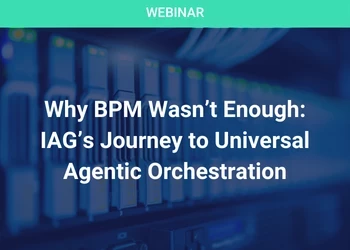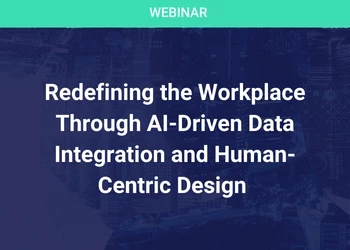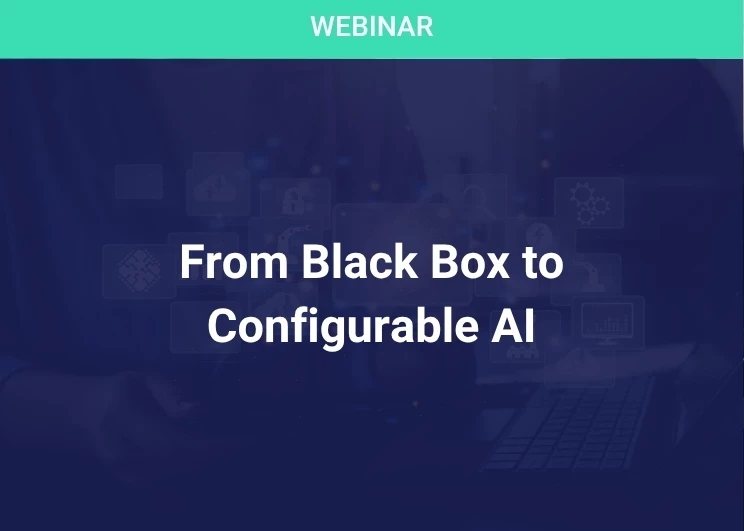Setting Up RPA Capability via a Center Of Excellence: Ahold Delhaize
How to drive process automation across Finance business processes
Add bookmark
RPA in Practice
The challenge: a global food retail giant operating across 6,600+ stores, in 10 countries and across 20 brands, sees the online portion of its business growing significantly faster than the traditional brick and mortar segment. Innovation is a key strategy to drive improved efficiency and effectiveness in business processes, among other things. Today, robotic process automation (RPA) is one of the main drivers.
The key priorities to ensure future success at Ahold Delhaize, as Maarten Laarakker, Vice President Business Services Finance explains, are:
- developing world-class digital capabilities;
- driving performance through data analytics insights [e.g. a more personalized offering]; and
- leveraging efficiency and effectiveness in business processing to generate value.
Robotic process automation was recognized as a driver of performance through its positive impact on process optimization/standardization; efficiency; and growth. More specifically, it was RPA’s ability to operate 24/7; its speed, compliance and auditability; enhanced data quality; scalability; and a payback period of under one year; that made it such an interesting opportunity for Ahold Delhaize.
[inlinead]
The RPA capability was centralized in a Center of Expertise (COE) located within the Business Services Finance group, as this group already had experience in continuous improvement methodologies. In addition, “efficiency” was the basis of its modus operandi. Change management, so critical to transformation, was already well represented within Business Services, and RPA was recognized as a logical next step to business process improvement.
The implementation of robotics was first initiated through Ahold Delhaize’s BPO partner [Genpact] in 2016. The outsourced finance processes quickly ramped up to 40 bots. It was the success of this project that, in turn, drove Ahold Delhaize’s team to consider RPA in its own, non-outsourced, business processes.
Working with a consulting firm [Deloitte], a "quick scan" of potential automation opportunities identified 188 processes as a good fit. This was followed up with an intensive communication and training schedule, also supported by the consulting partners, to engage employees and stakeholders. Communications extended to IT, business, and finance, and touched everyone who would somehow be impacted by automated processing.
In total, 200 employees were trained at a high level of automation, of which a smaller group received advanced training for spotting business opportunities. In addition, 10 were trained as RPA developers to build automation under the guidance of the COE, and 10 more were trained as bot controllers (bots are treated as virtual employees and, therefore, form part of a team of human employees and are managed accordingly).
So far, the initiative has been very successful with more than 115,000 hours returned to the business in the first year of automation. The program has extended beyond RPA to RCA [Robotic Cognitive Automation] by leveraging tools that tap into unstructured data via natural language generation (NLG).
The key successes have been significantly more engaged employees; process excellence; and the development of an in-house COE for RPA, which is driving significant value for the business already. This will be rolled out across more countries and operations next year.
One measure of the program’s success is that it's no longer necessary to "push" automation to the business. Instead, today the business is "pulling" from the COE. The appetite for RPA solutions is increasing, and a template now provides a standardized approach to evaluating the opportunities being brought in. (The template checks a number of factors including project complexity, IT dependence, and value.)
Ahold Delhaize is targeting 200 bots by the end of 2019 – whereby the number of bots is not the challenge, as Maarten explains. The challenge lies in accelerating across countries, which is more of a change management issue.
You can watch a webinar in which Maarten presets his RPA story, here
To measure performance, the focus was initially on the number of bots but that proved misleading, as one bot could manage multiple processes. Instead, today the focus is on number of processes automated, leaving the actual bots required to the bot factory to sort out.
Skills remain a challenge, Maarten confirms. He has invested 12 months of training to upskill his team and train them on the job. The investment is paying off however, he says.
Looking forward, Maarten sees the COE taking a leading position in driving automated efficiencies and improved effectiveness across Ahold Delhaize. Robotic process automation is a good start and it has proven a valuable business tool, he explains – but the future promises significantly more gains via cognitive solutions. The ability to tap into unstructured data to complement the data already easily accessible will drive exponential value, Maarten foresees. RPA is just the beginning.
Have you read?
7 of the Most Important Automation Stats for 2019
10 Best Shared Services Statistics We've Seen!






















